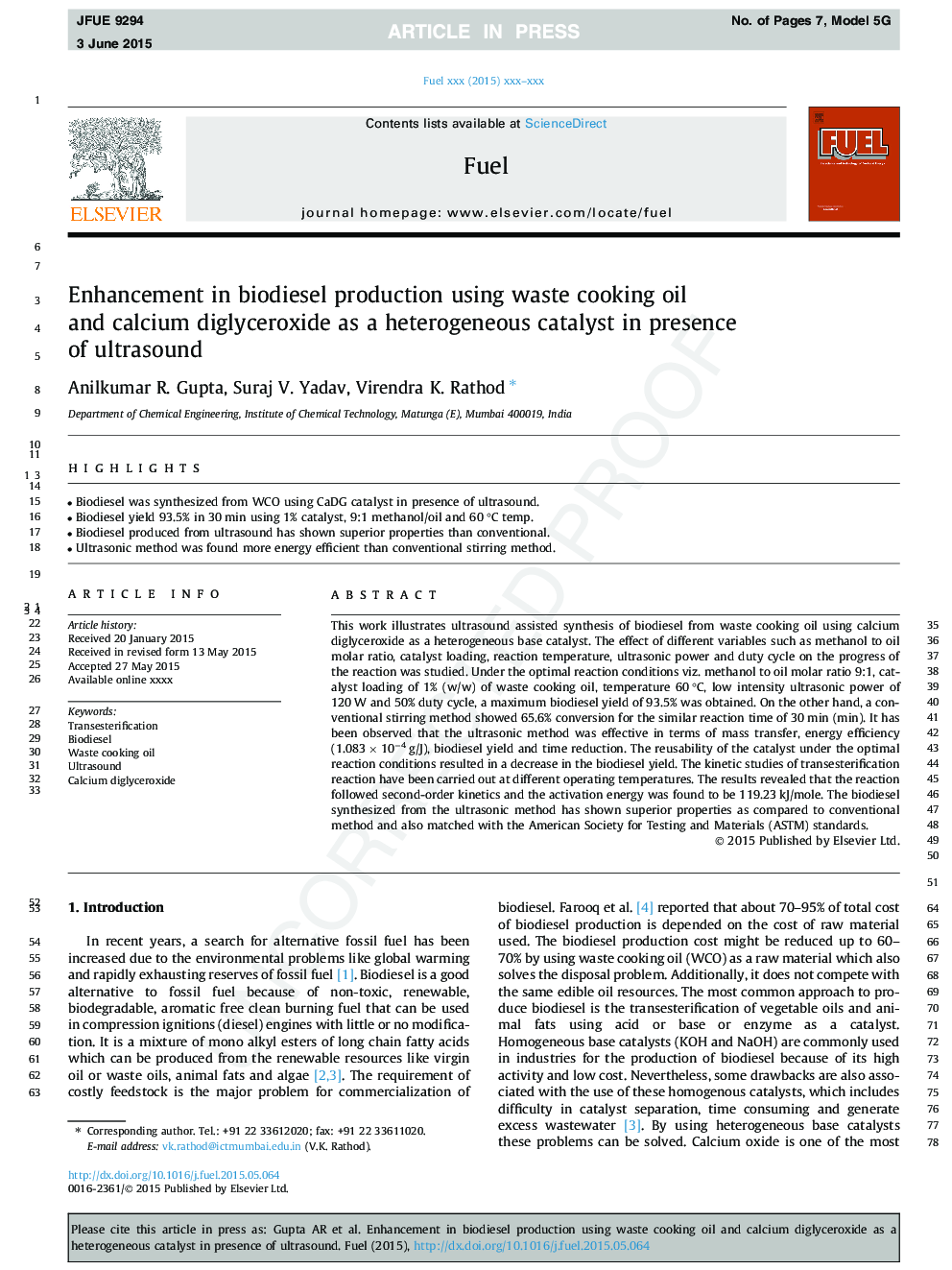| Article ID | Journal | Published Year | Pages | File Type |
|---|---|---|---|---|
| 6635165 | Fuel | 2015 | 7 Pages |
Abstract
This work illustrates ultrasound assisted synthesis of biodiesel from waste cooking oil using calcium diglyceroxide as a heterogeneous base catalyst. The effect of different variables such as methanol to oil molar ratio, catalyst loading, reaction temperature, ultrasonic power and duty cycle on the progress of the reaction was studied. Under the optimal reaction conditions viz. methanol to oil molar ratio 9:1, catalyst loading of 1% (w/w) of waste cooking oil, temperature 60 °C, low intensity ultrasonic power of 120 W and 50% duty cycle, a maximum biodiesel yield of 93.5% was obtained. On the other hand, a conventional stirring method showed 65.6% yield for the similar reaction time of 30 min. It has been observed that the ultrasonic method was effective in terms of mass transfer, energy efficiency (1.083 Ã 10â4 g/J), biodiesel yield and time reduction. The reusability of the catalyst under the optimal reaction conditions resulted in a decrease in the biodiesel yield. The kinetic studies of transesterification reaction have been carried out at different operating temperatures. The results revealed that the reaction followed second-order kinetics and the activation energy was found to be 119.23 kJ/mole. The biodiesel synthesized from the ultrasonic method has shown superior properties as compared to conventional method and also matched with the American Society for Testing and Materials (ASTM) standards.
Related Topics
Physical Sciences and Engineering
Chemical Engineering
Chemical Engineering (General)
Authors
Anilkumar R. Gupta, Suraj V. Yadav, Virendra K. Rathod,
